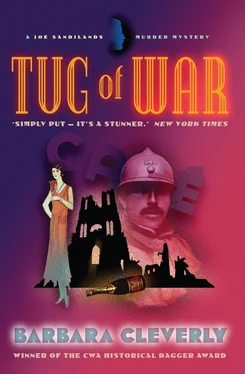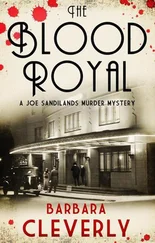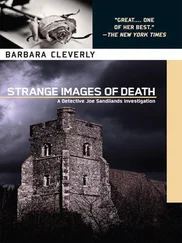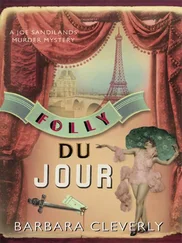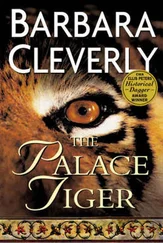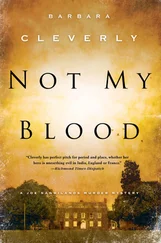Barbara Cleverly - Tug of War
Здесь есть возможность читать онлайн «Barbara Cleverly - Tug of War» весь текст электронной книги совершенно бесплатно (целиком полную версию без сокращений). В некоторых случаях можно слушать аудио, скачать через торрент в формате fb2 и присутствует краткое содержание. Год выпуска: 2011, Издательство: Constable & Robinson, Жанр: Исторический детектив, на английском языке. Описание произведения, (предисловие) а так же отзывы посетителей доступны на портале библиотеки ЛибКат.
- Название:Tug of War
- Автор:
- Издательство:Constable & Robinson
- Жанр:
- Год:2011
- ISBN:нет данных
- Рейтинг книги:3 / 5. Голосов: 1
-
Избранное:Добавить в избранное
- Отзывы:
-
Ваша оценка:
- 60
- 1
- 2
- 3
- 4
- 5
Tug of War: краткое содержание, описание и аннотация
Предлагаем к чтению аннотацию, описание, краткое содержание или предисловие (зависит от того, что написал сам автор книги «Tug of War»). Если вы не нашли необходимую информацию о книге — напишите в комментариях, мы постараемся отыскать её.
Tug of War — читать онлайн бесплатно полную книгу (весь текст) целиком
Ниже представлен текст книги, разбитый по страницам. Система сохранения места последней прочитанной страницы, позволяет с удобством читать онлайн бесплатно книгу «Tug of War», без необходимости каждый раз заново искать на чём Вы остановились. Поставьте закладку, и сможете в любой момент перейти на страницу, на которой закончили чтение.
Интервал:
Закладка:
‘Scotland Yard, ’ere!’ began Bates. ‘Shoot!’
‘Tracking two British servicemen. Any details welcome. Edward Thorndon, Royal Fusilier. Marne region 1915-17. Billeted here at. .’ Joe gave the location of the château. ‘And a fellow officer known to be a captain in the same regiment, name of John. Surname? Christian name? I don’t know. Be grateful for anything you have.’
‘Easy-peasy Ten. . twenty minutes to be on the safe side. Ring me back on this number, Captain.’
Joe wrote it down.
He was joined a few minutes into his vigil at the telephone by Dorcas, who waited with impatience for Joe to pick up the receiver.
Bates answered at once when he got through. ‘Got ’em, sir. Both of ’em. Thorndon, Edward Alexander. 1st City of London Regiment. Royal Fusiliers, as you say. Educ. Harrow and Cambridge. Entered the war early, rose to Major by 1917. I have a list of wounds and decorations but that’ll keep, I expect? Send a copy to your office, shall I? Right-oh. Disappeared at the time you mention, end July ’17. Posted “missing in action, presumed dead” on his way up to rejoin his regiment at Ypres. They were bivouacked in Vélu Wood if my memory serves me right. Overcrowded.’ Joe could imagine Bates’s mouth curling with disapproval. ‘Weather wet and cold for August. Not much comfort after his château accommodation!
‘I have a letter here — well, copy of — condolences to Thorndon’s parents (can let you have their details if you want them) written by his fellow officer, John. Then Major John, DSO. That’s Sebastian John. Now serving in India. Lieutenant Colonel John is up in Peshawar. Anyway — at the time, he was already stationed two miles north-northeast of Bapaume at Frémicourt. His pal never turned up for the party. With German Uhlans known to be patrolling the environs, he guessed he’d been shot, shelled or taken prisoner. All too likely. Several of our patrols went missing on the roads up there.’
‘Mists of war, Bates. Mists of war. Hang on a tick, would you?’
Dorcas was mouthing something at him. Catching it, he nodded and added, ‘You don’t happen to have a service identification photograph of Thorndon, do you?’
‘Hang on, there’s something in the correspondence. Stack of letters here from the parents. Enquiry after enquiry. Went to the very top. Looks like they refused to accept his death. The usual heartbreak. Yes, thought I’d spotted one. Here’s a photo. Not a military one. Civilian. Taken before the war I’d say. He looks young. . middle twenties tops.’
‘Describe him, will you?’
‘Nothing out of the ordinary. Very English-looking. Hair: light. Rather more than his fair share. I expect his mum took him to the barber’s before he marched off. Eyes: pale. . grey? Blue? Moustache: neatly trimmed.’
‘Sort of man ladies might find attractive?’ Joe persisted. ‘Ronald Colman type perhaps?’
Bates gave this suggestion his serious consideration. ‘More in the way of Douglas Fairbanks, I’d have said. Cheeky expression. He’s grinning like he’s just cracked a joke. Smartened up and in uniform, he’d have been a sharp lad. “Follow me, chaps!” Up the rigging or over the top — they’d have followed him all right.’
‘One last thing, Bates. Look at his ears. Tell me about them.’
‘Eh? One on each side of his head. Usual thing.’
‘Look closely and see if the lobes are attached to the sides of his face.’
There was a clunking of the receiver and a rustling as Bates tweaked experimentally at his own lobes. ‘Not easy to say from this print. Reconnaissance rendered difficult, Captain, by presence in target area of thick ground cover. He’s got dundrearies.’
‘What was that, Bates?’
‘Sideburns. Down to an inch below the ears.’
‘Bates, thank you for this. A bit of a mixed bag there. But I’d say you’ve managed to shine a light on a murky little area down here. Sent up a Very light, you might say! We might not like what we see but at least we’ve got a look at it.’
They signed off with mutual expressions of regard and Joe filled in the details for Dorcas.
‘There’s only one thing we can do, Joe, isn’t there?’ said Dorcas. ‘You can’t go to Bonnefoye with this and you can’t tell Uncle Charles either. You said you wouldn’t. We’ve got to tell Georges. He ought to know about the scene the doctor witnessed at the hospital when Thibaud spoke in English and mimed killing someone. He ought to know about the identifying marks on his father. Someone ought to suggest to him that there is a possibility that the body — if there is a body — in the cellars may not be his father and his mother may not be a murderer. Nothing will ever be known for certain as long as the truth stays walled up. You’ve got to speak to him, Joe.’
‘Correction — we ’ve got to speak to him.’
‘He said he’d be in the stables,’ she said, a little too readily perhaps.
They made their way unobserved over to the stables and slipped inside. Georges was busy polishing up an already gleaming black stallion and Joe wondered if the boy’s hands were ever still. Seeing them, Georges closed the stall and dismissed the groom he was talking to. They approached, remaining a respectful distance from the large black, Joe noting its wicked eye and waltzing hooves.
‘Ah! This’ll be the God of Thunder?’ he said admiringly. ‘Knew a fellow just like him in the war. Early days. Name of Gatecrasher, for obvious reasons. Crasher for short. Hell on the hunting field but he knew what to do, faced with a contingent of German cavalry.’
Georges smiled, stowed his brushes and beckoned them over to a pile of hay bales in the corner farthest from the doors. A bucket by the side of the bales contained a scattering of cigarette ends and, seeing Joe’s eyes on this, Georges remarked with an easy grin: ‘Dangerous habit, I know. But smoking, swearing and whistling are three vices you can only indulge in in front of the horses. Banned from the house.’
And, as they settled down one on either side of him, ‘You have news for me?’
‘We have, my friend, and it’s a bit mixed. Not quite sure what you’ll make of this,’ Joe began ponderously.
‘It concerns Edward,’ Dorcas said impatiently. ‘Edward Thorndon, the English officer who was billeted on you.’ She produced the notebook open at the page showing the frequency of his visits and the two heads bent over it. In a few short sentences Dorcas set out the extent of their discoveries and outlined their suspicions and speculations. ‘Do you see, Georges — they were never here at the same time. Not until that July in 1917 when they clashed. The day they both disappeared. Neither was seen again.’
Georges listened without interrupting, finally sighing. ‘I loved Edward,’ he said simply. ‘You’re right — he did come. . not often. . leave was scarce in the British Army as well, and whenever his company took leave they went to Paris, of course, but he always came here, sometimes with his friend Captain John. I think it must have reminded him of his home because he fitted in at once. He never asked what jobs needed to be done, he rolled up his sleeves and just got on with it. I followed him about everywhere, copying what he did, correcting his French. It was good to have a young and vigorous man about the place. Even when he was wounded and couldn’t do much he still. . would radiated confidence be too strong an expression?
‘The first time I met him. . I was just returning from the fields. . he was out in the yard. A squad of six or so had arrived an hour earlier. He was splitting logs for firewood. He looked up and said, “You must be Georges. Here, Georges, have an axe and let’s get this pile stacked before the stable bell rings five, shall we?” I’d never been allowed to use an axe before.’
Читать дальшеИнтервал:
Закладка:
Похожие книги на «Tug of War»
Представляем Вашему вниманию похожие книги на «Tug of War» списком для выбора. Мы отобрали схожую по названию и смыслу литературу в надежде предоставить читателям больше вариантов отыскать новые, интересные, ещё непрочитанные произведения.
Обсуждение, отзывы о книге «Tug of War» и просто собственные мнения читателей. Оставьте ваши комментарии, напишите, что Вы думаете о произведении, его смысле или главных героях. Укажите что конкретно понравилось, а что нет, и почему Вы так считаете.
